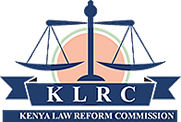Conclusion
This paper sought to undertake a general and preliminary examination of Tribunals in Kenya from their statutory framework. The inevitable conclusion is that Tribunals play a critical part in adjudication and resolution of disputes. They enjoy great advantages over regular courts of law which make them an important vehicle for delivering administrative justice. More importantly, due to their informality, simpler procedures and cheapness, Tribunals are better placed than regular courts to ensure that the majority of citizens access justice.
However in Kenya today Tribunals are incapable of delivering quality administrative justice to Kenyans. The plethora of tribunals is confusing and compounding even to the lawyer, let alone the ordinary Kenyan. Ironically, the whole justification of the Tribunal system is to enable citizens to access administrative justice easily, speedily, cheaply and fairly. The present system does not foster these core values of an administrative justice system. The Tribunals are constituted and operate as part of the administration whose decisions are normally called into question before them. They lack independence and impartiality. They enjoy wide discretion without adequate mechanisms for accountability, leading to great variations in decision making. So many fundamental differences defying rational justification exist between the Tribunals that the principle of equal access to justice is undermined.
A casual examination of developments in the United Kingdom, New Zealand and Australia shows concerted efforts being undertaken to address similar concerns with Tribunals. The recommendations are against the proliferation of ad hoc Tribunals and the creation of a unified tribunal framework. Perhaps it is time that we took a hard and deeper look at our Tribunals than this paper is able to do at present.
One of the possible approaches is for the Attorney General to mandate the Kenya Law Reform Commission to undertake a thorough study of the Tribunal systems in Kenya with a view to making recommendations for reforming the same to ensure a measure of independence and impartiality, professionalism, standardisation, openness and efficiency.
(Joash Dache is Secretary/CEO Kenya Law Reform Commission. He is a CPS (K) and an advocate of the High Court of Kenya)
